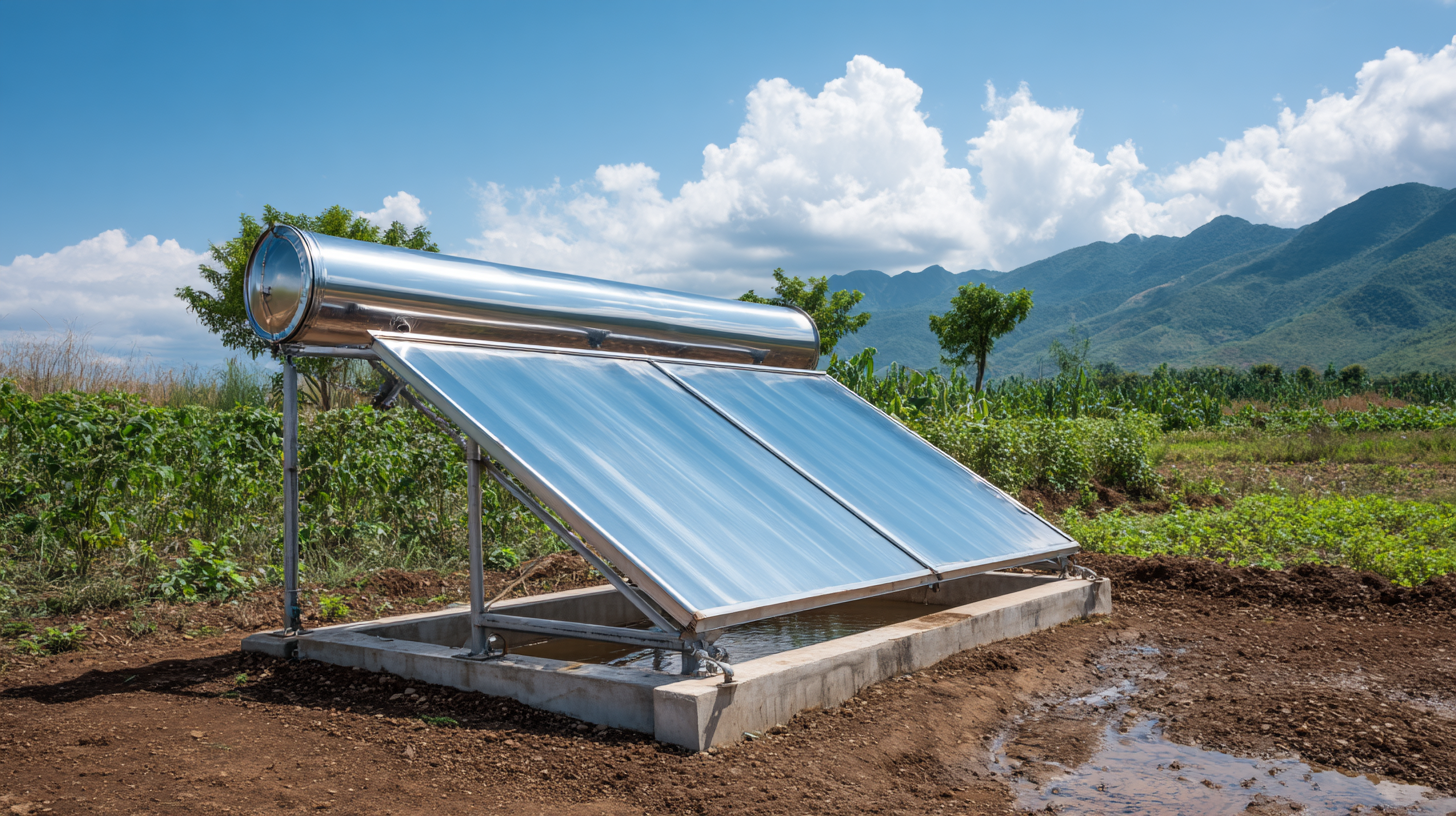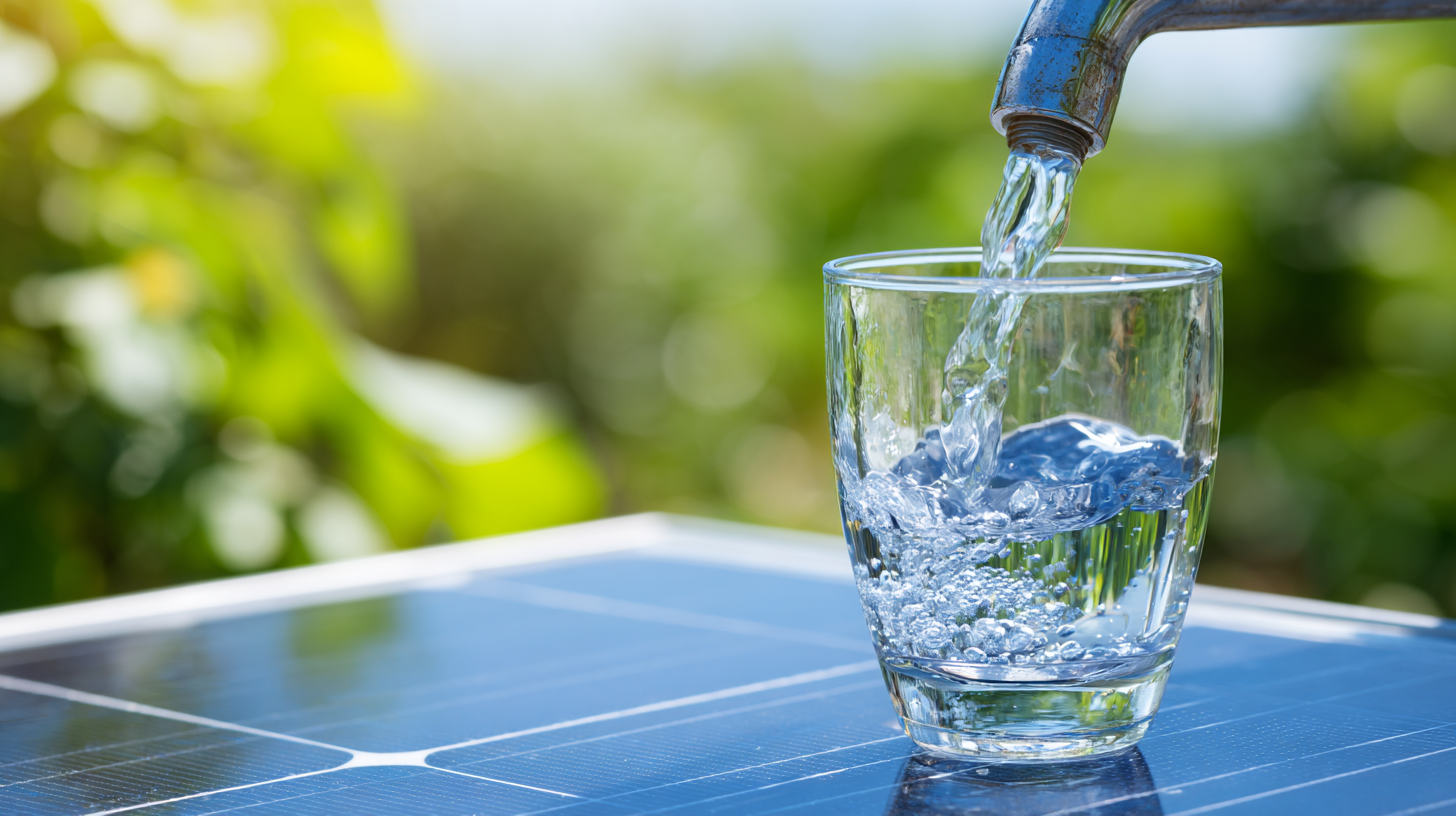5 Essential Tips for Buyers to Maximize Benefits of Solar Hot Water Systems
 As the demand for renewable energy continues to rise, many homeowners are turning to solar hot water systems as a sustainable and cost-effective solution for their water heating needs. According to the U.S. Department of Energy, solar water heating can reduce utility bills by up to 80%, making it an attractive investment for environmentally conscious consumers. Moreover, the Solar Energy Industries Association reports that the market for solar water heating systems is expected to experience significant growth over the next few years, highlighting the increasing interest in this technology. With various options available, it is crucial for buyers to understand how to maximize the benefits of solar hot water systems. This blog will provide five essential tips to help buyers make informed decisions, ensuring they choose the right system that suits their needs, optimizes energy savings, and contributes positively to the environment.
As the demand for renewable energy continues to rise, many homeowners are turning to solar hot water systems as a sustainable and cost-effective solution for their water heating needs. According to the U.S. Department of Energy, solar water heating can reduce utility bills by up to 80%, making it an attractive investment for environmentally conscious consumers. Moreover, the Solar Energy Industries Association reports that the market for solar water heating systems is expected to experience significant growth over the next few years, highlighting the increasing interest in this technology. With various options available, it is crucial for buyers to understand how to maximize the benefits of solar hot water systems. This blog will provide five essential tips to help buyers make informed decisions, ensuring they choose the right system that suits their needs, optimizes energy savings, and contributes positively to the environment.
Understanding Solar Hot Water Systems: Key Components and How They Work
Solar hot water systems (SHWS) are becoming increasingly popular as an effective way to harness renewable energy for household needs. These systems primarily consist of solar collectors, storage tanks, and distribution systems. The type of collectors, whether flat-plate or evacuated-tube, impacts efficiency and installation costs. A recent numerical simulation study has highlighted that forced circulation systems (FC-SWHs) can greatly enhance the performance of solar water heating by optimizing heat transfer, which is crucial during colder seasons when solar radiation is less intense.

In Europe, building-scale renewable energy systems face an uneven diffusion due to various factors at household, local, and country levels. Factors such as policy support, financial incentives, and public awareness significantly impact the adoption rates of solar technologies. For instance, the integration of Building Integrated Photovoltaic Thermal (BIPV/T) systems is emerging as a viable solution for maximizing space and energy efficiency, demonstrating the potential for creating Net Zero Energy homes. This innovative approach not only meets thermal and electrical demands but also augments the overall performance of SHWS by storing thermal energy generated during the day for use at night, showcasing the importance of system integration in enhancing energy efficiency.
Evaluating Your Home’s Energy Needs Before Investing in Solar Solutions
When considering the installation of solar hot water systems, evaluating your home’s energy needs is a critical first step. Understanding your current energy consumption can help you identify how much hot water you need on a daily basis. This assessment not only influences the size and efficiency of the solar water heating system you choose but also ensures that you maximize the potential savings and benefits from the investment.

The market for renewable energy solutions, including solar technologies, is witnessing significant growth. The solar generator market alone is projected to increase from $591 million in 2024 to over $1 billion by 2032. Additionally, the broader energy landscape, including battery storage inverters and smart home solutions, showcases how shifting towards energy-efficient technologies is becoming essential for consumers.
By carefully evaluating your home's specific energy requirements, potential buyers can make informed choices that align with this growing trend towards sustainable energy solutions, ultimately leading to long-term benefits and reduced utility costs.
Choosing the Right Type of Solar Hot Water System for Your Lifestyle
When selecting a solar hot water system, it's crucial to align your choice with your lifestyle and usage needs. There are primarily two types of systems to consider: active and passive solar water heating systems. Active systems involve pumps and controls that circulate the water, making them ideal for households with higher hot water demands. According to the U.S. Department of Energy, homes using active systems can see energy savings of up to 80%, significantly enhancing efficiency for larger families or properties with extensive hot water needs.
On the other hand, passive systems, which rely on natural convection, are simpler and typically require less maintenance, making them suitable for smaller households or vacation homes. The National Renewable Energy Laboratory suggests that passive systems can be as effective as active systems in certain climates, particularly where sunlight is abundant. Choosing the right type ultimately hinges on your specific usage patterns, local climate, and budget considerations, ensuring that you maximize the advantages of your solar hot water investment while minimizing long-term costs.
Maximizing Cost Savings: Incentives and Financing Options for Buyers
Harnessing solar hot water systems not only helps reduce energy bills but also offers various financial incentives that can significantly enhance cost savings for buyers. According to the U.S. Department of Energy, homeowners can save between $200 to $600 annually on energy costs by switching from traditional water heating methods to solar alternatives. To make the transition even more enticing, there are numerous financing options available, including low-interest loans and government incentives that can help offset initial installation costs.
One essential tip for buyers is to research state and federal tax credits. For instance, the federal solar tax credit allows purchasers to deduct a percentage of the cost for solar hot water systems from their federal taxes. Coupled with local rebates, this can lead to substantial savings. Additionally, buyers should consider taking advantage of financing through local utility companies, which often offer solar-specific loan programs with favorable terms.
Also, exploring options like Property Assessed Clean Energy (PACE) financing can present another beneficial avenue. PACE programs allow homeowners to finance solar hot water systems through property taxes, enabling them to enjoy the benefits while paying off the cost over time. By leveraging these financial resources, buyers can maximize the benefits of their solar hot water systems while significantly lowering their out-of-pocket expenses.
5 Essential Tips for Buyers to Maximize Benefits of Solar Hot Water Systems
| Tip | Description | Incentives | Financing Options |
|---|---|---|---|
| Research Local Incentives | Investigate local and federal incentives for solar hot water systems. | Tax credits, rebates by local authorities. | Low-interest loans, energy efficiency grants. |
| Evaluate System Size | Choose a system size based on your household's hot water needs. | N/A | Payment plans based on system size. |
| Select Quality Components | Invest in quality panels and tanks for durability. | Potential manufacturer incentives. | Financing options for high-quality brands. |
| Inquire About Installation Costs | Get quotes from multiple contractors for installation costs. | Some programs cover installation fees. | Installment payment plans available. |
| Consider Maintenance Programs | Look into maintenance programs to ensure long-term performance. | Discounts for maintenance packages. | Financing for maintenance plans. |
Maintenance Tips to Ensure Long-Term Efficiency of Solar Hot Water Systems
Maintaining your solar hot water system is crucial for ensuring its long-term efficiency and effectiveness. Regular maintenance not only extends the lifespan of the system but also helps in maximizing energy production. Begin with routine inspections; check for any visible leaks or corrosion in the pipes and tanks. Ensuring that the solar collectors are clean and free from debris is essential, as dirt can significantly reduce their efficiency. Using a soft cloth and a gentle cleaner can help keep the glass surface of the collectors clear and free from obstructions.
Additionally, it’s important to monitor the system’s pressure and temperature regularly. Keeping an eye on these parameters can help identify any potential issues early on. If the system has a fluid-based heat exchanger, ensure that the antifreeze levels are adequate, especially before winter. Lastly, don’t overlook the importance of professional annual maintenance. A qualified technician can perform comprehensive checks and recommend any necessary repairs or upgrades, ensuring that your solar hot water system continues to operate at peak performance for years to come.
